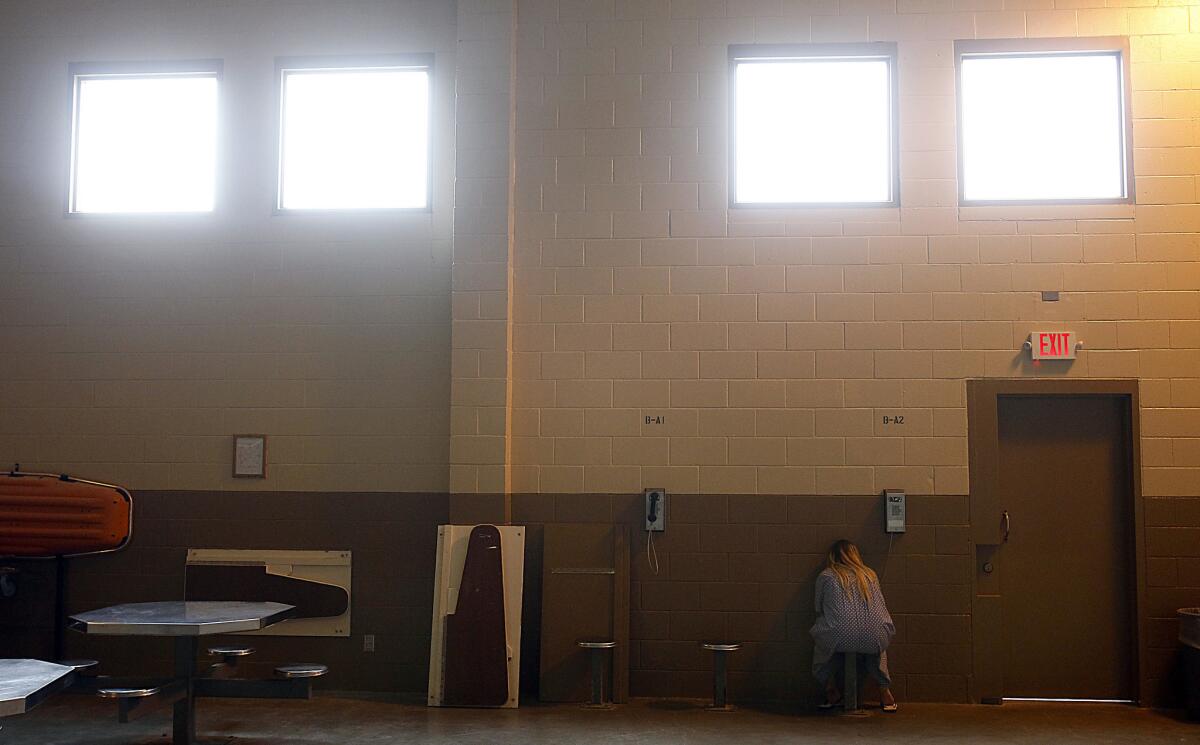Audit questions whether 39 female inmates consented to sterilization

- Share via
Reporting from SACRAMENTO — At least 39 female inmates at California prisons underwent sterilizations in which the women’s informed consent was in question, according to a state audit released Thursday.
The inquiry by the California state auditor found no evidence that doctors documented that the women had consented to the procedure in 27 cases. In 18 cases there were “potential violations” of the required waiting period between consent and the sterilization procedure, the report stated. Both violations may have occurred in some of the cases.
The California Legislative Women’s Caucus, joined by other state lawmakers, called for the investigation after allegations surfaced that prison doctors had pressured female inmates into being sterilized.
The women also were sterilized without the approval of top prison officials in Sacramento, which was first reported by the Center for Investigative Reporting. The auditor’s report criticized the state Department of Corrections and Rehabilitation — as well as the federal receiver who has been overseeing healthcare at California prisons since April 2006 — for failing to ensure the proper protocols for consent were followed.
“This audit demonstrates there is a systemic problem, and implicates the entire culture,” said Sen. Hannah-Beth Jackson (D-Santa Barbara). “The right to have a family is a fundamental right that each of us has. Many of these women are first-time offenders and already have families.”
Jackson said there also was an underlying question as to whether a woman in prison has the true freedom to make an informed and uncoerced decision.
Pending legislation offered by the senator would ban sterilization of women in state prison or county jails for the purpose of birth control. It also would prohibit sterilization unless the inmate’s life was in danger or the procedure was medically necessary, and even then would require approval from a doctor independent of the prison system.
While the procedures were performed at hospitals, not at prison medical facilities, prison officials still had the responsibility to ensure consent was documented, the report stated.
The audit recommended that the federal receiver for prison healthcare report the doctors and hospitals associated with those questionable sterilizations to the California Department of Public Health and the Medical Board of California, which license hospitals and physicians respectively.
Liz Gransee, spokeswoman for the receiver’s office, said the prison system would comply with all of the report’s recommendations.
“We are taking additional safeguards to ensure that nothing like this happens again in the future,” Gransee said.
In 27 of the sterilizations, the physician who performed the procedure failed to sign the required form to document that the women had provided their consent.
That deficiency was especially concerning because the doctors’ signatures serve as certification that the required waiting period has been satisfied and that “the patient is mentally competent and understands the lasting effects of sterilization,” the report stated.
At California prisons housing female inmates, 144 women underwent the sterilization procedure known as bilateral tubal ligation between July 2005 and June 2013.
A legal organization representing female inmates accused the state in 2010 of wrongdoing in the sterilizations of incarcerated women.
More to Read
Sign up for Essential California
The most important California stories and recommendations in your inbox every morning.
You may occasionally receive promotional content from the Los Angeles Times.











